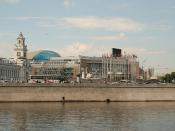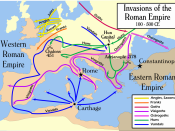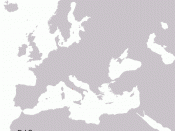Introduction
The Understanding Economics textbook defines an economic system as, "the organisation of an economy, which represents a country's distinct set of social customs, political institutions and economic practices". In this report I will discuss two of the worlds' leading economic systems, Capitalism and Communism. As well, I will discuss our Nation's economic system, the mixed economy. I plan to research the three elements stated by the textbook for each of the economic systems mentioned.
Economic systems are divided into three basic types: Traditional, Market and Command.
A traditional system is one in which people's economic roles are the same as their parents
and grandparents. These societies produce goods and services in traditional ways, mainly
basing their work on the resources of the land and the way that has been practiced for
centuries.
A market system is one in which nations economic decisions are the result of individual decisions by buyers and sellers in the marketplace.
These societies have the freedom to produce what and how much related to demand of the product by consumers.
A command system is one in which the government makes all of the decisions. The government decides which goods and services are produced, it regulates the distribution, and as well, dictates how the skills of workers are to be used. The Command system is more commonly referred to as Communism.
Throughout history, every society has faced the basic economic problem of deciding what to produce, how to produce it and for whom it will be produced. A country's leader has been responsible at the forefront of the ultimate well being of the economy. To decide which economic system is most beneficial, results from history and its effectiveness. Systems can be affected by global trends and forceful influences from more powerful nations. It is obvious that...



Economic system in world
this is very nice and informative essay
1 out of 1 people found this comment useful.